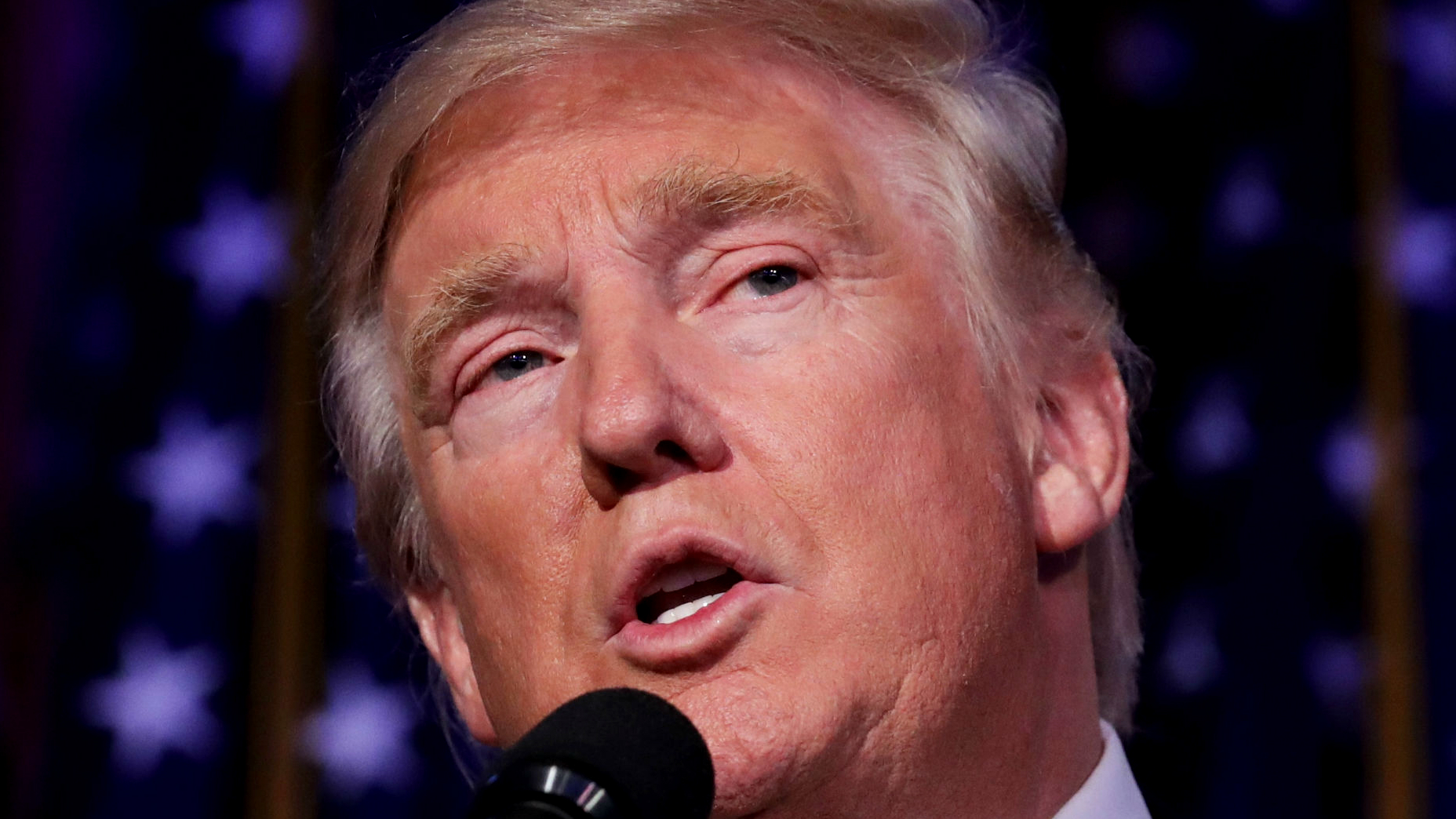Did Trump cause Ford to cancel $1.6bn Mexico plant?
Plan to build new factory dropped hours after president-elect threatens General Motors with high tariffs

A free daily email with the biggest news stories of the day – and the best features from TheWeek.com
You are now subscribed
Your newsletter sign-up was successful
Car manufacturer Ford seemed to bow to pressure from Donald Trump last night to make cars in the United States.
In what the New York Times called a "stunning reversal", the company cancelled a planned $1.6bn (£1.3bn) plant in Mexico and announced it will invest $700m (£571m) in its factory in Flat Rock, Michigan, instead.
The proposal, which will create around 700 jobs, was greeted with jubilation by workers at the plant. However, it is not all it seems. Although jobs are being created in the US, Ford is still shifting production of its Ford Focus saloon south of the US border.
The Week
Escape your echo chamber. Get the facts behind the news, plus analysis from multiple perspectives.

Sign up for The Week's Free Newsletters
From our morning news briefing to a weekly Good News Newsletter, get the best of The Week delivered directly to your inbox.
From our morning news briefing to a weekly Good News Newsletter, get the best of The Week delivered directly to your inbox.
While the planned plant will not be built, the cars, which are currently manufactured near Detroit, will be made at an existing factory in Mexico. Michigan will produce electric and hybrid vehicles.
Bowing to pressure?
A few hours before Ford's announcement, Trump threatened to impose tariffs on another US car manufacturer, General Motors (GM), for vehicles it made in Mexico for the US market.
In response, GM said only a "small number" of its US-bound Cruze hatchbacks are built in Mexico, with the bulk of the cars made for export outside North America.
A free daily email with the biggest news stories of the day – and the best features from TheWeek.com
Ford insisted its decision was made for commercial reasons and that it had not consulted the US president-elect or his team. The New York Times, however, says the company did tell Trump of its plans before making them public.
'Enormous impact'
"Both developments [Ford and GM] indicate how Mr Trump is having an enormous impact on how American car companies run their operations, even before he takes office," says the NYT.
According to the paper, Ford's announcement and GM's statement "illustrate that one of Mr Trump's particular points of criticism, manufacturing in Mexico, has become particularly sensitive".
Other targets
This is just the "latest in a line of trade deals being played out in the public arena since Mr Trump was elected president", says the Daily Telegraph, adding that the US president-elect has also:
- called for the scrapping of multi-million dollar plans for Boeing to build a new Air Force One;
- threatened to cancel the F-35 fighter jet program with Lockheed Martin;
- criticised agricultural machinery manufacturer Rexnord for moving jobs from Indiana to Mexico;
- accused online retailer Amazon of not paying fair taxes in the US, and
- claimed mobile phone provider T Mobile has "terrible" service.
What next?
Nobody knows whether Trump will carry on criticising individual companies after taking office on 20 January, but it seems certain he will maintain his opposition to the North American Free Trade Agreement (Nafta), which allows the free flow of goods between Canada, the US and Mexico.
During his campaign to be president, Trump promised to rip up the agreement and impose a 35 per cent tariff on the sale of Mexican products in the US.
That could backfire politically, warns the NYT. Mexican wages can be as low as $10 (£8) an hour but unionised US workers expect $29 (£24), a difference that could push up the price of US-made cars and lower sales.
-
 What to know before filing your own taxes for the first time
What to know before filing your own taxes for the first timethe explainer Tackle this financial milestone with confidence
-
 The biggest box office flops of the 21st century
The biggest box office flops of the 21st centuryin depth Unnecessary remakes and turgid, expensive CGI-fests highlight this list of these most notorious box-office losers
-
 What are the best investments for beginners?
What are the best investments for beginners?The Explainer Stocks and ETFs and bonds, oh my
-
 Epstein files topple law CEO, roil UK government
Epstein files topple law CEO, roil UK governmentSpeed Read Peter Mandelson, Britain’s former ambassador to the US, is caught up in the scandal
-
 Iran and US prepare to meet after skirmishes
Iran and US prepare to meet after skirmishesSpeed Read The incident comes amid heightened tensions in the Middle East
-
 Israel retrieves final hostage’s body from Gaza
Israel retrieves final hostage’s body from GazaSpeed Read The 24-year-old police officer was killed during the initial Hamas attack
-
 China’s Xi targets top general in growing purge
China’s Xi targets top general in growing purgeSpeed Read Zhang Youxia is being investigated over ‘grave violations’ of the law
-
 Panama and Canada are negotiating over a crucial copper mine
Panama and Canada are negotiating over a crucial copper mineIn the Spotlight Panama is set to make a final decision on the mine this summer
-
 Why Greenland’s natural resources are nearly impossible to mine
Why Greenland’s natural resources are nearly impossible to mineThe Explainer The country’s natural landscape makes the task extremely difficult
-
 Iran cuts internet as protests escalate
Iran cuts internet as protests escalateSpeed Reada Government buildings across the country have been set on fire
-
 US nabs ‘shadow’ tanker claimed by Russia
US nabs ‘shadow’ tanker claimed by RussiaSpeed Read The ship was one of two vessels seized by the US military